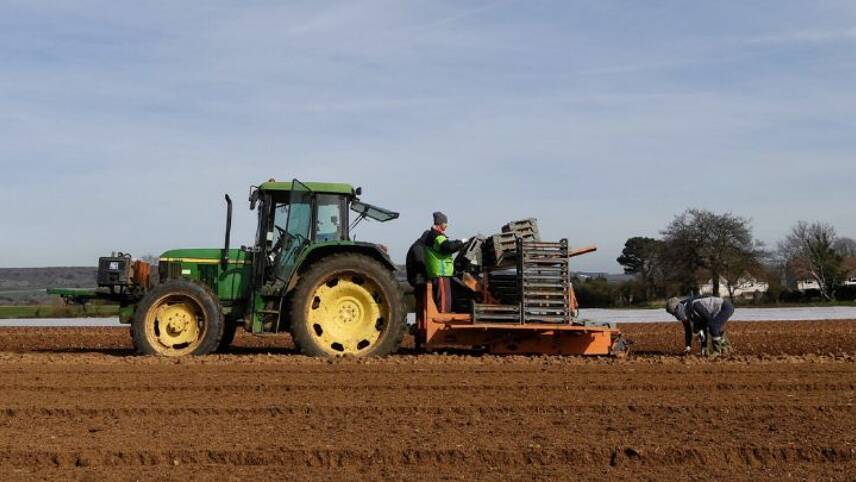Register for free and continue reading
Join our growing army of changemakers and get unlimited access to our premium content

The trade organisations behind the recommendations collectively represent the majority of the four million people employed in the UK’s food and drink industry
In a new framework entitled ‘A Recipe for Growth, Prosperity and Sustainability: the UK Food and Drink Industry’s Plan for Success’, the Food and Drink Federation sets out a string of industry-led recommendations for the upcoming National Food Strategy, which will outline plans for the national industry after Brexit.
Under a central call for more “joined-up” and “holistic” policy frameworks, the document urges greater policy signals to support the sector’s progress towards Climate Change Act targets, including those to help decarbonise heat and maintain “clear” carbon pricing.
This request comes just days after the UK pledged to amend the Act in order to raise the 2050 target from an 80% reduction, against a 1990 baseline, to net-zero. Crucially, the Food and Drink Federation has asked Ministers to ensure that all relevant policy frameworks under this long-term goal also help boost commercial competitiveness.
The Federation’s recommendations suggest that innovation will play a key role in the food and drink sector’s low-carbon transition. They include a request for the sector to receive more support through programmes such as the Industrial Strategy Challenge Fund, in order for the solutions to feeding 10 billion people worldwide by 2050 to be developed and scaled up.
Away from decarbonisation, the framework also recommends that more is done to “harness the benefits of a circular economy” through future policies on innovation and resource efficiency, arguing that doing so would be key to long-term competitiveness. Indeed, a recent study by the Ellen MacArthur Foundation found that embedding circular economy principles within the global agri-food sector could contribute $2.7trn (£2.1trn) to the economy through decreased healthcare, resource and environmental restoration costs.
And, elsewhere, the framework additionally sets out a string of further recommendations concerning skills and talent, exports, future trade policy and obesity. All recommendations were developed by a coalition of more than 30 large trade associations, collectively representing the majority of the four million people employed in the UK’s food and drink industry.
“Ahead of the upcoming National Food Strategy, the UK Food and Drink Industry’s Plan for Success demonstrates that our industry is ready and willing to deliver economic growth, healthier consumption, environmental benefits and higher-skilled jobs that will benefit every community,” the Food and Drink Federation’s chief executive Ian Wright said.
“Now we need governments across the UK to work with us in partnership to deliver a thriving UK food and drink industry.”
No more sugarcoating
The report is the latest in a string of calls to make global food systems more sustainable, amid rising diagnosis rates of diet-related diseases and rising levels of greenhouse gas (GHG) emissions. Indeed, the so-called “Big Food” industry – the global systems in which the majority of the world’s mass-produced food is grown and manufactured – is estimated to account for around a quarter of carbon emissions globally.
At the World Economic Forum’s (WEF) 2019 summit in Davos earlier this year, the Ellen MacArthur Foundation unveiled research revealing that, for every dollar that is spent on food, governments and charities spend two dollars compensating for the negative effects these products have on health, the environment and the economy.
Another key finding detailed in the NGO’s ‘cities and a circular economy for food’ report is that, if global food systems do not become circular, five million people will die each year due to food-related conditions by 2030. This accounts for those affected by environmental degradation caused by food production, as well as those suffering from malnutrition and those who are obese.
In a bid to tackle the issue, many UK food and drink firms are moving to align with the UN’s Sustainable Development Goals (SDGs), particularly SDG 2, Zero Hunger, and SDG 12, Responsible Consumption and Production. More than 100 companies are now signed up to the Government’s ‘Step up to the Plate’ pledge, which commits signatories to halving their food waste output by 2030, after Costa joined last week, for example.
In tandem, meat-free alternatives with lower carbon footprints are beginning to gain serious traction in the UK market. This year’s Veganuary campaign was supported by the likes of Gregg’s, Pizza Hut, Waitrose & Partners and Tesco. Marks and Spencer (M&S) and, since then, KFC has launched its first plant-based ‘chicken’ product.
Sarah George


Please login or Register to leave a comment.